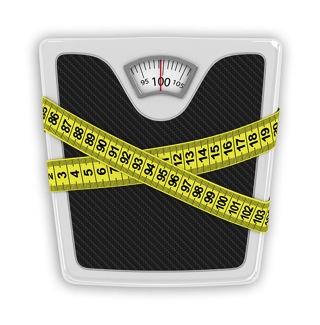
After studying dieting for 20 years, a researcher concluded diets simply don't work, a fact countless Americans have spent 20-plus years of their own lives validating.
Why? Dieting is constructed around faulty principles that defy human biology and psychology. The "calories in versus calories out" model fails to account for hormonal shifts during weight loss, the psychological consequences of deprivation, and the futility of willpower when it comes to eating.
In a nutshell, the human body has mechanisms in place designed to compensate for starvation.
Three things that cause diets to fail
The researcher found three key reasons why diets fail:
- The deprivation of dieting wires your brain to notice food more and to make food appear more appetizing, tempting, and harder to resist.
- Weight loss through calorie restriction causes hormonal shifts that decrease satiety hormones and increase hunger hormones. As a result, you feel less full on the same amount of food than you used to.
- Calorie restriction slows down your metabolism so that you become more efficient at storing fat and less efficient at burning it. This is why people actually become heavier after each diet.
In essence, dieting is starving, and your body responds to a diet just as it would to a famine — with these responses that have kept humans alive throughout the ages.
What's worse, the dieting industry has spun this built-in failure into a $61 billion dollar industry that preys on insecurities and hopes while ignoring some basic tenets of human function.
What about willpower?
When it comes to dieting, willpower is a poor tool. For example, if you use willpower to avoid Facebook during a two-hour work project and succeed except for during the last 10 minutes, that last-minute lapse does not undo your previous success. However, if you sit in front of a platter of donuts during a two-hour meeting and resist them except during the last 10 minutes, that last-minute lapse has undone your previous success.
The study found that the slightest distractions can trigger overeating in those who are dieting. It also concluded that the paltry 5 percent who do succeed at maintaining their weight loss devote their lives to their weight, living like a starving person.
So does this mean I can never lose weight?
Thankfully, no. The key is to eat consciously with a focus on health and nutrition, not to starve your body and trigger binges and rebounds. Many people who follow a functional medicine approach to health find weight loss is just one of the many benefits they experience.
For instance, your excess weight could be the result of low thyroid function, food intolerances, blood sugar imbalances, sleep deprivation, and even over exercising. Excess weight is typically a symptom of a deeper problem and addressing the underlying cause can result in gradual, healthy, and hunger-free weight loss. And not everyone is meant to be rail thin — you may need to adjust your expectations to honor your body's set point and not society's.
Also, many people have dug themselves into a deep hole of self-loathing because of their many dieting failures. This causes chronic and sometimes severe stress that can impact your biology and serve as another barrier to weight loss. It's important to honor your physiology and rewire your belief systems around eating and your body to facilitate more positivity and relaxation.
Ask my office for more advice on the proper care and feeding of your body.



Latest from the Blog
Autoimmune Disease Management with EBOO Therapy
July 17, 2024Autoimmune diseases, characterized by the immune system attacking the body’s own tissues, present significant challenges in treatment and management. Extracorporeal Blood Oxygenation and Ozonation (EBOO) therapy offers a promising adjunctive approach to managing autoimmune conditions. Functioning similarly to a dialysis machine, EBOO filters the blood to remove toxins and pathogens that may trigger autoimmune responses. […] Read more
Latest from the Blog
Detoxification and EBOO Therapy: Optimizing Cellular Health
Detoxification plays a crucial role in maintaining optimal health in today’s toxin-laden environment. Extracorporeal Blood Oxygenation and Ozonation (EBOO) therapy offers a sophisticated approach to detoxifying the bloodstream and enhancing overall well-being. Operating similarly to a blood filtration system, EBOO effectively removes toxins, pesticides, and chemicals that accumulate in the body, supporting the body’s natural […] Read more